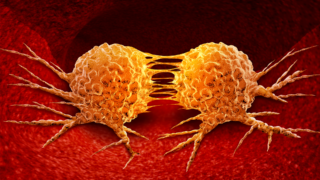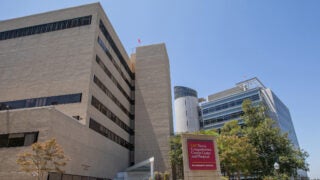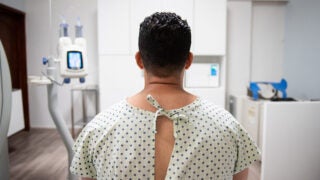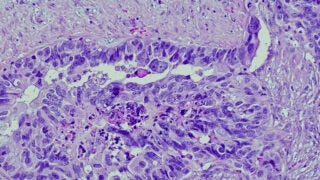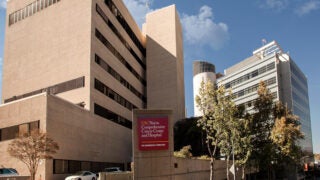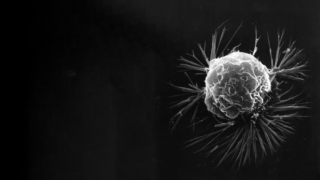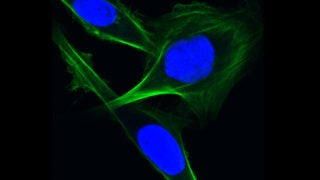Mathematician Paul Newton will use the prestigious fellowship to investigate cancer models; composer Nicolás Lell Benavides will complete several musical works.
Cancer
News Listing
A first-of-its-kind clinical trial from Keck Medicine of USC will investigate if immunotherapy administered at home can achieve the same outcomes as in-clinic therapy.
Researchers from disparate disciplines at USC, CHLA, Cedars-Sinai and Stanford University join to find solutions to cancer.
The recognition comes from The Leapfrog Group, a respected national hospital watchdog organization.
A study led by the Keck School of Medicine of USC found that third-generation Mexican Americans are 66% more likely to get liver cancer than the first generation.
Various PFAS and phenols were linked with higher rates of previous melanoma, ovarian cancer and uterine cancer diagnoses, according to a study co-led by the Keck School of Medicine of USC.
The blood test may distinguish between cancerous and benign pelvic masses with up to 91% accuracy, surpassing other commercially available tests.
The new Ralph Lauren Center for Cancer Prevention will aim to reduce cancer disparities in underserved communities in Los Angeles and surrounding areas.
USC Dornsife physicist Peter Kuhn discusses his breakthrough breast cancer detection test, which could potentially upend how we diagnose many types of cancer.
Researchers from the Keck School of Medicine of USC discovered that when cells are under stress, a key protein can travel to the nucleus and reprogram cells to migrate and become more invasive.



